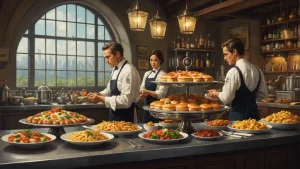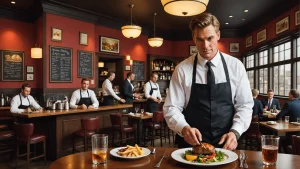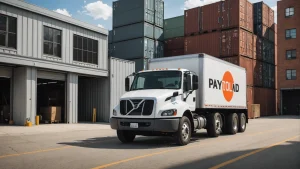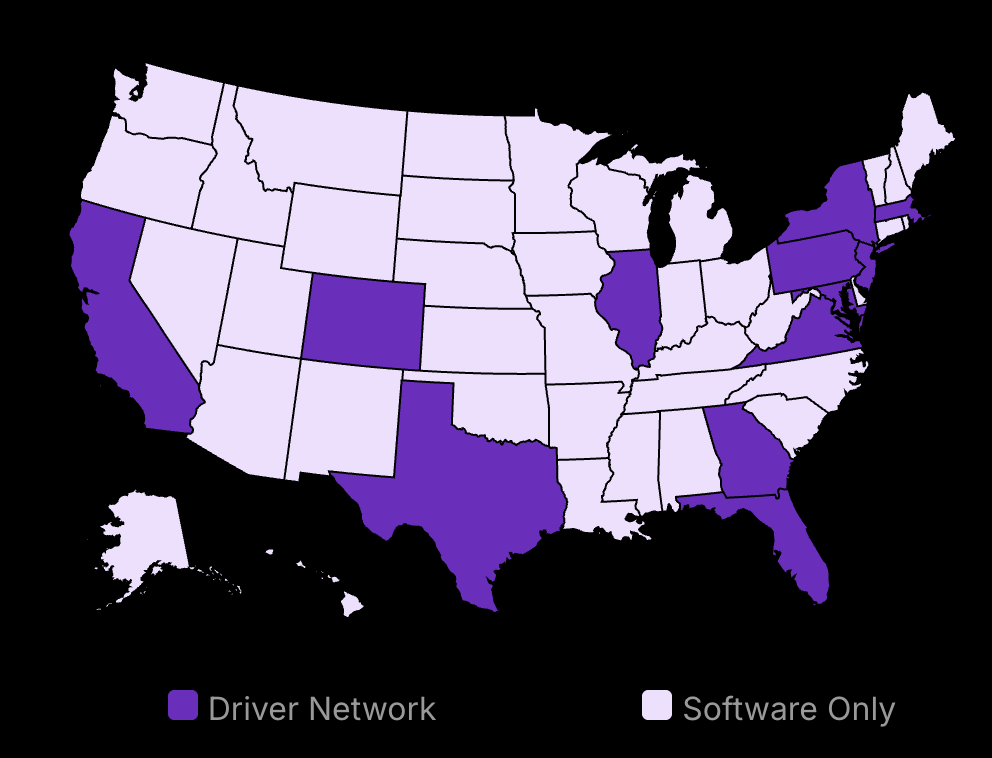Are you a restaurant owner struggling to define your manager’s role and responsibilities? You’re not alone. In 2024, the restaurant industry is more competitive than ever, and having a clear understanding of your restaurant manager’s role and duties is crucial for success. Discover the importance of a sous chef in your culinary team, focusing on their contributions and tasks in supporting the executive chef.
This ultimate guide to hospitality management will help you navigate the complex world of restaurant management, from overseeing daily operations to driving long-term growth. Discover the key skills and responsibilities that make a successful restaurant manager, and learn how to balance ownership and management roles effectively. Explore the crucial position of a runner in the food service sector, understanding their duties and the significance they hold in maintaining smooth restaurant operations.
By the end of this article, you’ll have a comprehensive understanding of what a good restaurant manager does and how their duties impact your business’s bottom line. Explore the importance of a kitchen’s preparatory cook in aiding the restaurant manager by understanding their crucial responsibilities and support roles.

Lower your delivery costs by 23%
How we reduce costs:
- No delivery vehicle expenses
- Optimized local routes
- Pay-per-delivery model
- Average 23% delivery cost reduction
Restaurant Manager Job Description: Key Duties and Responsibilities
Overseeing Daily Restaurant Operations
A restaurant manager’s primary responsibility is to ensure the smooth running of the establishment on a day-to-day basis. This involves managing staff schedules, assigning roles and responsibilities, and ensuring that each team member performs their duties effectively. During peak hours and special events, the restaurant manager skills must be able to think on their feet, delegate tasks, and make quick decisions to maintain a high level of service.
Handling customer complaints and resolving issues promptly is another crucial aspect of a restaurant manager’s daily responsibilities. They must possess excellent communication and problem-solving skills to address customer concerns, find solutions, and maintain a positive dining experience. By effectively managing daily operations, the restaurant manager creates a welcoming environment for guests and fosters a productive work atmosphere for staff.
Restaurant managers are also responsible for hiring, training, and evaluating staff members. They must identify talent, conduct interviews, and make informed hiring decisions based on the restaurant’s needs. Once new team members are onboarded, the restaurant manager’s duties must provide comprehensive training on job responsibilities, customer service standards, and safety protocols. Discover how a manager of the kitchen contributes to the success of the restaurant by managing kitchen activities and guiding the culinary team.
Ongoing staff development is essential for maintaining a skilled and motivated team. Restaurant managers should regularly assess employee performance, provide constructive feedback, and offer opportunities for growth and advancement. By investing in their team’s development, managers can reduce turnover, boost morale, and create a positive work environment that translates into exceptional customer service. Discover invaluable training strategies for restaurant staff to enhance their skills and ensure your establishment offers top-notch service.
Financial Management and Budgeting
Effective financial management is a critical component of a restaurant manager’s job description. They must monitor daily sales, costs, and profit margins to ensure the business remains profitable. This involves analyzing financial reports, identifying areas for improvement, and making data-driven decisions to optimize revenue and minimize expenses.
Developing and adhering to monthly and annual budgets is another essential responsibility. Restaurant managers must allocate resources wisely, forecast future expenses, and adjust budgets as needed based on market trends and business performance. By keeping a close eye on the restaurant’s financial health, managers can make informed decisions that contribute to long-term success and growth. Incorporating hospitality technology services can further aid in financial management by providing advanced tools for budgeting, cost analysis, and inventory control, thereby enhancing overall efficiency and profitability.
Inventory management is a key aspect of financial management in the restaurant and hospitality industry. Restaurant managers must regularly monitor stock levels, place orders with suppliers, and ensure that the establishment has the necessary ingredients and supplies to meet customer demand. They must also implement effective storage and rotation practices to minimize waste and maintain food quality.
Cost control is another critical responsibility for restaurant managers. They must regularly review menu pricing, analyze food and labor costs, and make adjustments as needed to maintain profitability. This may involve negotiating with suppliers, optimizing portion sizes, and implementing energy-saving measures to reduce utility expenses. By effectively managing inventory and controlling costs, restaurant managers can improve the bottom line and ensure the business remains financially sustainable.
Maintaining Health and Safety Standards
Restaurant managers are responsible for ensuring that the establishment adheres to all relevant health and safety regulations. This involves implementing and enforcing food safety protocols, maintaining a clean and hygienic environment, and regularly inspecting equipment and facilities to identify and address any potential hazards. Gain insights into how bussers in restaurants are integral to maintaining these standards by assisting in keeping the dining and kitchen areas clean and well-organized.
Managers must also train staff on proper, food and beverage handling techniques, personal hygiene standards, and emergency procedures. They must stay up-to-date with local health department regulations and ensure that the restaurant is prepared for inspections at all times. By prioritizing health and safety, restaurant managers protect the well-being of both customers and staff, while also safeguarding the business’s reputation and legal standing.
Marketing and Customer Relations
In addition to managing daily operations and finances, restaurant managers also play a key role in marketing and customer relations. They must develop and implement strategies to attract new customers, retain existing ones, and promote the restaurant’s brand and offerings.
This may involve overseeing social media campaigns and managing online reviews. They also can collaborate with local businesses and organizations to build community partnerships. Restaurant managers must also foster positive relationships with customers by providing exceptional service, addressing concerns promptly, and creating a welcoming and memorable dining experience.
By effectively managing marketing and customer relations, restaurant managers can increase brand awareness, drive customer loyalty, and ultimately boost revenue and profitability.
Collaborating with Owners and Upper Management
Finally, restaurant managers serve as a critical link between front-line staff and upper management or business owners. They must regularly communicate with owners and executives to provide updates on business performance, discuss strategies for improvement, and align daily operations with the overall vision and goals of the company.
Restaurant managers must also be able to effectively communicate the needs and concerns of their team to upper management, advocating for necessary resources, training, or support to ensure the success of the restaurant. By fostering open and transparent communication between all levels of the organization, restaurant managers can create a cohesive and effective team that works together towards common goals.

Metrobi is transforming catering deliveries
Specialized solutions for catering businesses:
- Catering-trained drivers
- Proper handling equipment
- Peak day delivery support
- 23% average cost reduction
Essential Restaurant Management Skills for Success For Many Restaurant Managers
Effective Communication and Leadership
The restaurant managers should communicate clearly and lead the team. They must be able to convey expectations and goals to your staff members in a way that is both understandable and motivating. This involves setting clear performance standards, providing regular feedback, and recognizing outstanding efforts.
Effective leadership also means inspiring your team to deliver excellent customer service skills consistently. When conflicts arise, a restaurant manager must handle the situation professionally and objectively, focusing on finding solutions rather than assigning blame.
Problem-Solving and Decision-Making
Running a restaurant involves facing a variety of operational challenges daily. A manager must be able to quickly identify and resolve these issues to maintain a smooth operation. This requires a proactive approach, anticipating potential problems and implementing preventive measures whenever possible.
When unexpected situations arise, such as equipment failures or staff shortages, managers need to adapt swiftly and make informed decisions to minimize their impact on your guests’ experience. This may involve reallocating resources, adjusting work schedules, or finding creative solutions to ensure service continues seamlessly.
Financial Management and Cost Control
Effective restaurant management also involves maintaining a keen eye on your establishment’s financial health. This includes managing budgets, controlling costs, and optimizing revenue streams. A manager must be able to analyze financial reports, identify trends, and make data-driven decisions to improve profitability. Discover how utilizing a divided shift schedule can significantly enhance your restaurant’s labor management and overall profitability.
Implement cost control measures, such as regularly reviewing vendor prices, minimizing waste, and optimizing labor schedules. Regularly manager should assess the menu’s performance, identifying high-profit items and adjusting prices as needed to remain competitive while ensuring profitability.
Customer Service and Guest Satisfaction
A manager must foster a customer-centric culture, empowering your staff to go above and beyond to create memorable dining experiences.
Managers should train the team to be attentive, friendly, and knowledgeable about your restaurant’s menu and service standards. They can encourage them to anticipate guests’ needs, offer personalized recommendations, and promptly address any concerns or complaints.
Time Management and Organizational Skills
A restaurant manager juggles multiple responsibilities simultaneously, from overseeing front-of-house operations to managing back-of-house activities. To be effective in this role, they must possess strong time management and organizational skills.
They should prioritize tasks based on their urgency and importance, delegating responsibilities to the team members as appropriate. They can develop systems and processes to streamline operations, such as implementing standard operating procedures (SOPs) for key tasks and using technology to automate repetitive processes.
Balancing Ownership and Management Responsibilities
As a restaurant owner, you wear many hats, from overseeing daily operations to planning for the future of your business. Balancing these responsibilities can be challenging, but it’s crucial for the success of your restaurant. In this section, we’ll explore how to effectively navigate the roles of owner and manager, delegate tasks, and prioritize long-term growth.
Delegating Tasks and Empowering Staff
One of the most important aspects of being a successful restaurant owner is learning to delegate tasks effectively. By assigning responsibilities based on your team member’s strengths and skills, you can create a more efficient and productive work environment.
Take the time to observe and assess your staff’s abilities and career interests. Some employees may excel at customer service, while others have a knack for handling inventory or managing the kitchen. By aligning tasks with their strengths, you can maximize their potential and boost overall performance.
Investing in your staff’s development is key to building a strong, capable team. Offer ongoing training opportunities, such as workshops or mentorship programs, to help your employees enhance their skills and grow within their roles. When your staff feels supported and valued, they are more likely to take ownership of their responsibilities and contribute to the restaurant’s success.
As you delegate tasks, it’s essential to trust your team members to handle day-to-day operations. Micromanaging can lead to decreased morale and hinder your staff’s ability to make decisions and solve problems independently. By empowering your employees and fostering a sense of autonomy, you can create a more engaged and motivated workforce.
Strategic Planning and Long-Term Growth
While managing daily operations is crucial, many restaurant managers and owners must also focus on the bigger picture. Strategic planning and long-term growth initiatives are essential for staying competitive and adapting to changing market conditions.
To attract new customers and maintain a loyal customer base, develop targeted marketing strategies. This may include leveraging social media, offering promotions or loyalty programs, or partnering with local businesses or events. Continuously you should analyze your marketing efforts’ effectiveness and adjust your strategies as needed to maximize their impact.
As your restaurant stabilizes and profits increase, you can consider opportunities for expansion or innovation. This may involve opening additional locations, expanding your menu offerings, or investing in new technology to streamline operations.
To ensure that your management practices align with your overall business goals, you should maintain open communication with your restaurant managers. Regularly discuss performance metrics, customer feedback, and employee concerns to identify areas for improvement. Work together with the kitchen manager to develop and implement strategies that support your long-term vision for the restaurant.
By effectively balancing ownership and management responsibilities, delegating tasks, and focusing on long-term growth, you can create a thriving restaurant that consistently delivers exceptional experiences to your customers while fostering a positive work environment for your staff.
Top 10 Responsibilities of a Successful Restaurant Manager
Hiring, Training, and Managing Staff
A restaurant manager’s primary responsibility is to build and lead a strong team. This involves attracting top talent, conducting interviews, and making strategic hiring decisions. Looking to enhance your approach to recruiting restaurant employees? Learn key methods and advice on securing and keeping the finest personnel for your establishment.
Once hired, the general manager also must develop and implement comprehensive training programs to ensure that all staff members understand their roles, the restaurant’s policies, and the expected level of service. Regular performance evaluations, coaching, and feedback sessions are essential to maintain a high-performing team. Discover exceptional strategies for training restaurant staff to enhance your team’s service quality and operational fluency.
Ensuring Exceptional Customer Service
A successful restaurant manager prioritizes customer satisfaction. They train staff to deliver friendly, attentive, and efficient service, ensuring that guests have a positive dining experience from start to finish. Managers must lead by example, demonstrating excellent communication skills and a customer-centric attitude. What does it mean to excel as a restaurant service manager? Explore the nuanced duties, obstacles, and triumphs entailed in mastering this crucial role in the hospitality sector.
Maintaining Food Quality and Safety Standards
Restaurant managers are responsible for upholding the highest standards of food quality and safety. They work closely with the kitchen staff to ensure that all dishes are prepared according to recipes, plated attractively, and served at the correct temperature. Managers also oversee food storage, handling, and hygiene practices to prevent foodborne illnesses.
Overseeing Inventory Management and Ordering
Effective inventory management is crucial for controlling costs and reducing waste in a restaurant. Managers are responsible for tracking stock levels, forecasting demand, and placing orders with suppliers. They must also negotiate prices, maintain relationships with vendors, and ensure timely deliveries.
Monitoring Financial Performance and Controlling Costs
Restaurant managers play a key role in the financial success of the business. They monitor daily sales, analyze financial reports, and make data-driven decisions to optimize revenue and minimize expenses. Managers must also create and adhere to budgets, control labor costs, and identify opportunities for cost savings.
Enforcing Health and Safety Regulations
Restaurant managers are responsible for ensuring compliance with all relevant health and safety regulations. This includes maintaining a clean and sanitary environment, training staff on proper food handling techniques, and implementing regular cleaning and maintenance schedules.
Coordinating with Kitchen Staff and Front-of-House Team
Successful restaurant managers foster a strong working relationship between the kitchen staff and the front-of-house team. They facilitate communication, coordinate service, and ensure that both teams are working together seamlessly to deliver an excellent dining experience.
Managers must also be prepared to step in and assist during peak hours or when staff members are absent. By leading by example and promoting a team-oriented culture, restaurant managers can create a positive and productive work environment.
Handling Customer Feedback and Reviews
In the digital age, customer feedback and online reviews can significantly impact a restaurant’s reputation and success. Restaurant managers must actively monitor and respond to customer comments, both positive and negative. They should use feedback to identify areas for improvement and make necessary changes to enhance the customer experience.
Implementing Marketing and Promotional Strategies
Restaurant managers play a key role in developing and executing marketing and promotional strategies to attract new customers and retain existing ones. This may include creating and managing social media accounts, running email marketing campaigns, and partnering with local businesses or influencers.
Managers should also analyze the effectiveness of marketing efforts, track customer acquisition and retention rates, and adjust strategies as needed to maximize ROI.
Continuously Improving Operational Efficiency
Successful restaurant managers are always looking for ways to streamline operations, reduce waste, and improve efficiency. This may involve implementing new technologies, such as inventory management software or online ordering systems, to automate tasks and enhance productivity.
Managers should also stay up-to-date with industry trends, attend conferences and workshops, and network with other professionals to learn best practices and innovative strategies. By continuously seeking opportunities for improvement, restaurant managers can help their businesses stay competitive and profitable in an ever-evolving industry.
Understanding the Role of a Restaurant Manager
Defining the Position and Key Objectives
A restaurant manager’s primary focus is ensuring the smooth daily operations of the establishment. This involves balancing multiple responsibilities, such as staff management, customer service, inventory control, and financial oversight. The restaurant manager responsibilities ultimate goal is to create a positive dining experience for customers while achieving the business objectives set by the owners. Explore how a kitchen line cook complements these efforts through their specialized tasks and commitment to culinary excellence.
Restaurant managers serve as the liaison between owners, staff, and customers. They are responsible for implementing the owner’s vision and strategies, communicating effectively with employees, and addressing customer concerns or feedback. By maintaining open lines of communication and fostering a positive work environment, managers can help align the efforts of all stakeholders toward common goals.
Differences Between Owners and Managers
While restaurant owners and managers work together towards the success of the business, their roles and responsibilities differ. Owners typically focus on the big-picture strategy, such as setting long-term goals, making significant financial investments, and determining the overall direction of the restaurant. They are responsible for major decisions that impact the business as a whole.
On the other hand, managers oversee the day-to-day operations and staff management. They are responsible for executing the strategies set by the owners and ensuring that daily tasks are completed efficiently. Managers handle hiring, training, and supervising employees, as well as managing inventory, maintaining food quality, and ensuring compliance with health and safety regulations.
The Impact of Effective Restaurant Management
-
Effective restaurant management directly affects customer satisfaction, loyalty, and overall business success.
-
Restaurant managers play a crucial role in optimizing costs, driving sales, and adapting to market trends.
Enhancing Customer Satisfaction and Loyalty
Delivering exceptional customer experiences is the foundation of a successful restaurant business. A skilled restaurant general manager ensures that their team consistently provides high-quality food and service to every guest. This involves:
-
Training and motivating staff to maintain high standards of food preparation, presentation, and service.
-
Regularly monitoring and evaluating the quality of dishes served to customers.
-
Encouraging open communication and feedback among team members to identify areas for improvement.
Moreover, effective restaurant managers promptly address customer concerns and feedback. They actively listen to guests’ opinions, whether positive or negative and take appropriate actions to resolve issues and improve the overall dining experience.
Creating a welcoming and memorable dining experience is another critical aspect of enhancing customer satisfaction. Restaurant managers work closely with their staff to cultivate a warm, inviting atmosphere and hospitality that makes guests feel valued and appreciated. This includes:
-
Ensuring the restaurant’s ambiance, decor, and lighting align with the brand’s identity and target audience.
-
Training staff to engage with customers in a friendly, attentive manner, anticipating their needs and preferences.
-
Implementing personalized touches, such as remembering regular customers’ names or favorite orders, to build stronger connections.
Driving Profitability and Business Growth
In addition to ensuring customer satisfaction, effective restaurant managers play a vital role in optimizing the business’s financial performance. They constantly seek ways to maximize profitability without compromising the quality of food or service. This involves:
-
Closely monitoring labor costs and scheduling staff efficiently to avoid overstaffing or understaffing.
-
Implementing inventory management systems to minimize waste, optimize portion sizes, and ensure the freshness of ingredients.
-
Negotiating with suppliers to secure the best prices and quality for food and supplies.
Restaurant managers also drive sales and revenue growth through various strategies, such as:
-
Implementing upselling techniques to encourage customers to try higher-margin menu items or add-ons.
-
Developing and executing promotional campaigns, such as limited-time offers or seasonal specials, to attract new customers and boost sales during slower periods.
-
Leveraging social media and online platforms to engage with customers, showcase the restaurant’s offerings, and build brand awareness.
Mastering Restaurant Management: Your Key to Success
Restaurant managers play a vital role in ensuring smooth operations, financial stability, and customer satisfaction. By overseeing daily tasks, managing staff, and making data-driven decisions, they keep the business running like a well-oiled machine. Discover the key tasks and obligations of a restaurant manager, a pivotal figure in maintaining operational efficiency and achieving customer delight.
Effective communication, leadership, problem-solving, and decision-making skills are essential for success in this role. Balancing the responsibilities of ownership and management requires delegating tasks, empowering staff, and collaborating on long-term goals.
By focusing on these key areas, you can enhance customer loyalty, drive profitability, and foster a thriving restaurant business. Invest in your management team, provide ongoing training and support, and watch your restaurant flourish.






























